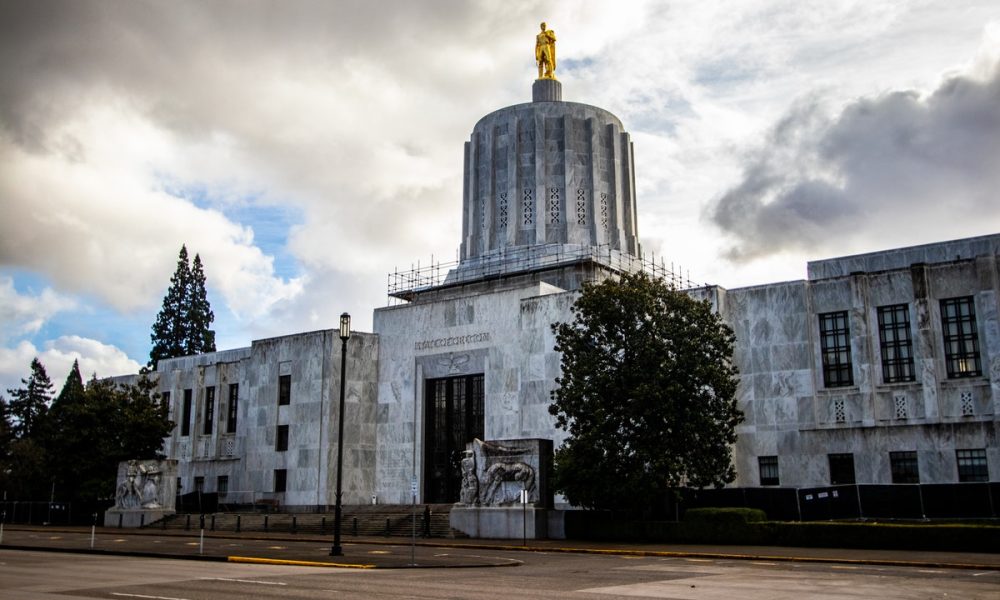
SALEM — Oregonians could see their cell phone bills go up to raise money for expanding rural high-speed internet.
Legislators are considering a surcharge on wireless calls to raise $10 million a year that utilities could use for internet projects in rural Oregon.
The average cell phone user could see an increase of $4 to $8 a year. The surcharge would apply only to calls within the state and also cover voice-over internet protocols.
The state created a special fund in 1999 to push telecommunications technology into rural areas. The idea is that all customers would help pay for services that are more expensive to provide in sparsely populated rural communities.
The critical telecom service used to be landlines. Now, it’s the internet.
According to a December report from the U.S. Census Bureau, rural areas of the country trail in their access to broadband.
In 2016, 64 percent of rural Oregonians lived in areas where they could access broadband speeds, while 98 percent of Oregonians in urban areas could, according to the Federal Communications Commission.
In rural areas of Sherman, Gilliam and Harney counties, the share of residents who have access to broadband was in the single digits. No rural residents in Wheeler County had access to broadband, according to the FCC data.
A greater share of rural Oregonians — about 95 percent — had high-speed internet access through cell phones, although that access varies widely between counties as well.
Some say the gap in accessibility to fixed broadband — high speed internet you can access on a computer or multiple computers at home, school or at work — cuts off rural areas from economic opportunities.
About 15 years ago, businesses, schools and local government in Tillamook County were clamoring for faster internet, according to David Yamamoto, a Tillamook County commissioner, who testified at a legislative hearing this week.
They didn’t want to wait for a commercial company to decide the county of about 26,000 people was a viable market.
Locals created Tillamook Lightwave, a partnership between the Port of Tillamook Bay, Tillamook County and the Tillamook People’s Utility District, to provide affordable broadband service.
“We have more cows than we do people in the county,” Yamamoto said. “Cows, fortunately, don’t use the internet, but our schools, and hospitals and businesses absolutely do.”
While businesses and government agencies have access now, many homes in the county still don’t have high-speed internet, said Yamamoto. He also serves on the Oregon Broadband Advisory Council.
Under House Bill 2184, legislation championed by state Rep. Pam Marsh, D-Ashland, a partnership like Tillamook Lightwave could apply to the state for money raised by the cell phone surcharge.
The proposal is one effort by state officials to bridge the so-called “digital divide” between rural and urban communities.
Gov. Kate Brown set aside $1.1 million in her recommended budget to pay for a new Broadband Office at Business Oregon, the state’s economic development department.
Marsh has also introduced legislation codifying that office in law and defining its responsibilities. A new state office could also make federal money more available to support the internet projects.
“Despite the fact that broadband availability is really central to the economic development of our small communities, at this point, no one in the state of Oregon is in charge,” Marsh said.
Last week, the Oregon Senate passed a bill to bump up discounts on broadband service for low-income people.
The surcharge proposal, HB 2184, says areas with no or minimal service should be prioritized.
The Taxpayers Association of Oregon and the Oregon Small Business Association oppose the proposal.
“We shouldn’t be taxing one service, cell phones, for another service, internet,” said Tootie Smith of the Taxpayers Association of Oregon.
John Cmelak, a tax policy director for Verizon Wireless, said money to support broadband should come from the state’s general fund, not cell phone customers.
“You shouldn’t have wireless customers paying for something they don’t benefit at all from,” Cmelak told lawmakers. He contended the surcharge was regressive, and said many poor people rely on voice calls and don’t have landlines.
But if Monday’s hearing was any indication, there is some confusion among legislators about what the bill would do, and how it would affect the cost of cell phone service and video call services like Skype.
State Rep. Brad Witt, D-Clatskanie, voiced frustration about what he felt was conflicting information presented by advocates and opponents of the bill on Monday.
“I don’t know what I can trust here in the testimony I’m hearing today,” Witt said. “I’m trying to make a decision here based on what I’m hearing, and I’m hearing very conflicting information.”
Marsh told her colleagues that the telecom industry is pushing for expansion of faster cellular service, known as 5G, mostly in urban areas.
“If we continue down the path toward bigger and faster technology without bringing rural Oregon along with us, we are going to exacerbate those rural Oregon technology divides,” Marsh said. “We are going to clearly identify the haves from the have-nots.”
Reporter Claire Withycombe: [email protected] or 971-304-4148. Withycombe is a reporter for the East Oregonian working for the Oregon Capital Bureau, a collaboration of EO Media Group, Pamplin Media Group, and Salem Reporter.









